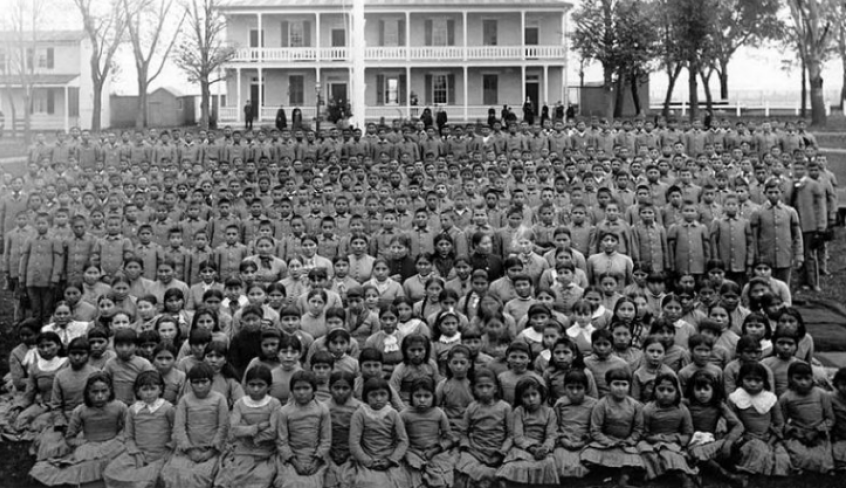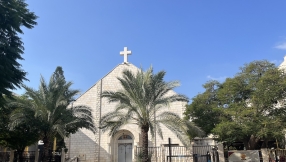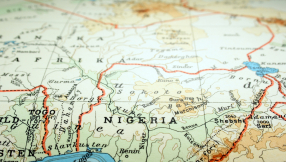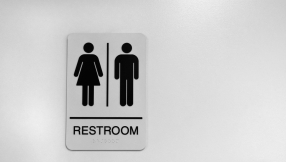
For most Native American children in the late 19th century and early 20th, education was neither a right nor a privilege. Indigenous children from Florida to Alaska were taken away, sometimes by force, to residential schools run by the government and often by denominations that operated under government contracts.
The aim of the education was to teach the children European American ways. Anything Indian, from language to clothing and dance, was forbidden. The system left a trail of trauma and death amid a quest for mass assimilation into white settler culture.
Now the Episcopal Church, which was involved in running at least 34 of the schools, has begun to reckon with the outsized role it played in this history. Last June, the church's Executive Council allocated $2 million in a truth-seeking process aimed at documenting how Episcopal-run schools impacted lives for generations — and to explain why things happened as they did.
When Episcopalians gather next week (June 23-28) for their General Convention in Louisville, Kentucky, a panel event will bear witness to boarding school legacies still impacting families and tribal communities. Meanwhile, two Episcopal commissions overseeing the research are asking bishops churchwide to grant access to archives in their regions and to recruit research assistants of their own.
The U.S. government operated or supported 408 boarding schools between 1819 and 1969, according to a 2022 Department of the Interior report under the Federal Indian Boarding School Initiative. "The United States pursued a twin policy: Indian territorial dispossession and Indian assimilation, including through education," the report says.
How the Episcopal Church used its considerable influence in crafting that federal policy must be understood before restorative justice can occur, said the Rev. Lauren Stanley, a research commission member and canon to the ordinary for the Episcopal Diocese of South Dakota.
"To simply say, 'Yes, we participated in running schools' without saying, 'Because we helped formulate the policy' denies truth, justice and the possibility of conciliation which we hope will lead to reconciliation," said Stanley in an email.
In Canada, where a similar boarding school system is blamed for eroding Indigenous languages and cultures, a truth and reconciliation process led to a $6 billion settlement with tribes in 2006 and multiple major settlements since then. Pope Francis, visiting Canada in 2022, apologized for the Catholic Church's role in what he called "cultural destruction and forced assimilation."
But in the United States, where church records haven't been made public and often aren't digitized or consolidated, Americans aren't being taught what happened. Studies show only a handful of states include the story of Native American boarding schools in their history curriculum standards.
The research done already shows the Episcopal Church was no minor player in the boarding school system. The 34 known schools are far more than previously identified, but people involved in the research say the list is expected to grow.
Beyond the number of its schools, Episcopalians and their church "played a uniquely transformative role" in creating the federal government's Carlisle Indian Industrial School, according to Veronica Pasfield, a Native American researcher and archival consultant. Carlisle became the prototype for U.S. residential schools under Richard Henry Pratt, an Army officer who'd fought Indians on the Great Plains. Episcopalians in the Dakotas reportedly helped recruit students for the school.
"Federal and Church power worked collaboratively to operationalize Indian policy via schools that removed children from home for indoctrination and extraction," writes Pasfield in a May consulting proposal. She's now helping guide the church's boarding school research.
"Indigenous Episcopalians are leading the process to uncover and tell the story of Episcopal Church involvement in Indigenous boarding schools, and that work, as they note, is just beginning," said Episcopal Church spokesperson Amanda Skofstad in an email. "An apology before thorough research and understanding would fall short of the truth-telling, reckoning, and healing we committed to as a church."
© Religion News Service













